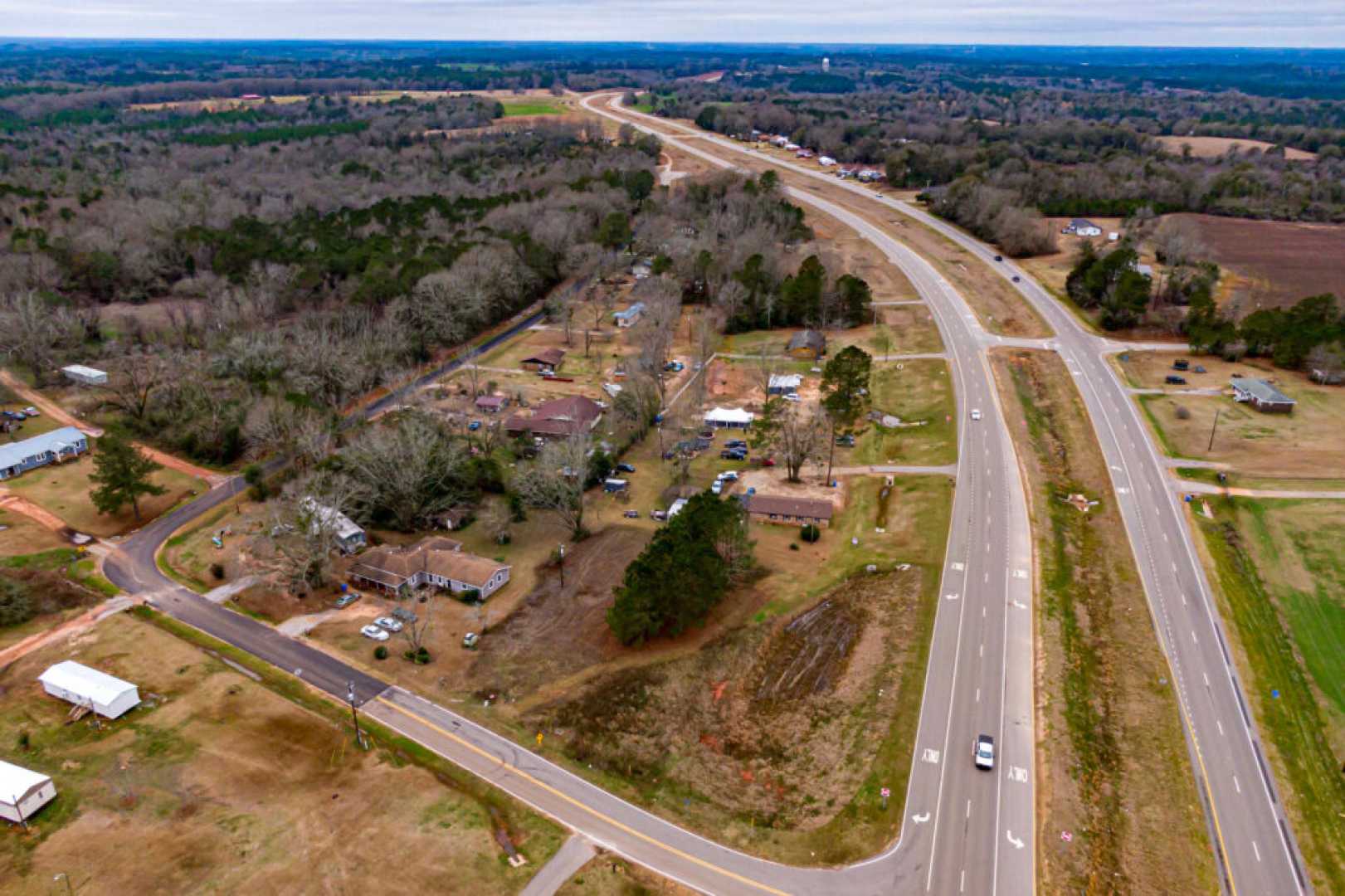News
Shiloh Residents Demand Federal Action as Flooding Crisis Persists

CLEVELAND, Ohio — Timothy Williams, a pastor and business owner from Shiloh, Alabama, joined congregants at a Cleveland church service earlier this month to sing the spiritual “I Don’t Mind Waiting.” But for Williams and his community, patience is wearing thin. After six years of advocacy, two presidential administrations, and numerous promises, residents of the majority-Black Shiloh community say they are still waiting for state and federal agencies to address flooding caused by a highway expansion project.
The flooding began after the Alabama Department of Transportation (ALDOT) widened an adjacent highway in 2018, which residents claim redirected runoff onto their properties. Despite a federal investigation launched in September 2022 by the U.S. Department of Transportation‘s Federal Highway Administration, a resolution has yet to fully address their concerns. A Voluntary Resolution Agreement reached in October 2024 required ALDOT to mitigate future flooding but did not compensate residents for existing property damage or assign liability for the flooding.
“The longer they put us on hold, things are getting worse and worse,” said Williams, who has been advocating for Shiloh since the flooding began. “We want [Transportation Secretary Pete Buttigieg] to give us a binding written agreement that will cover the damages of the people’s homes and their properties and make the people whole.”
However, a U.S. Department of Transportation spokesperson told ABC News that the agency lacks the authority to provide direct financial relief to communities like Shiloh. “Congress has not authorized any programs or funding for DOT that can provide emergency relief directly to communities experiencing hardship,” the spokesperson said.
The flooding has had far-reaching consequences, affecting transportation, housing, and the environment. A task force led by the U.S. Transportation Department, involving multiple federal agencies, has been working to identify resources for Shiloh. Environmental Protection Agency spokesperson James Pinkney confirmed that Shiloh residents applied for an EPA grant program in November, but the process has been slow.
With the Biden administration ending and a potential Trump administration on the horizon, Shiloh residents fear being left behind. In December, Williams and his daughters traveled to Ohio to confront Buttigieg during a speech at the City Club of Cleveland. Buttigieg acknowledged the challenges faced by vulnerable communities but stopped short of committing to additional resources for Shiloh.
Undeterred, Williams and environmental justice advocate Dr. Robert Bullard organized a petition with 5,000 signatures demanding a binding agreement to cover property damage. On Tuesday, the group traveled to Washington, D.C., to deliver the petition directly to the U.S. Transportation Department before Buttigieg’s term ends.
“We want to see a victory,” Bullard said. “How this community overcame all odds and got the resources from the federal government to make them whole.” Sierra Club Executive Director Ben Jealous echoed the call for justice, stating, “Their community’s been turned into a drainage ditch by the Alabama Department of Transportation with U.S. Department of Transportation dollars.”
As Shiloh’s 150-year legacy hangs in the balance, residents continue to fight for accountability. “It’s already been two administrations that have allowed this to happen,” Bullard said. “This should not — and must not — bleed into a third administration.”












